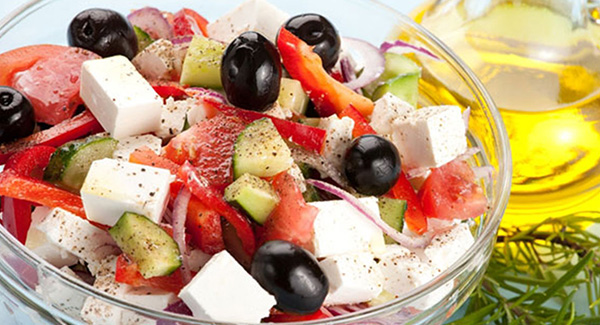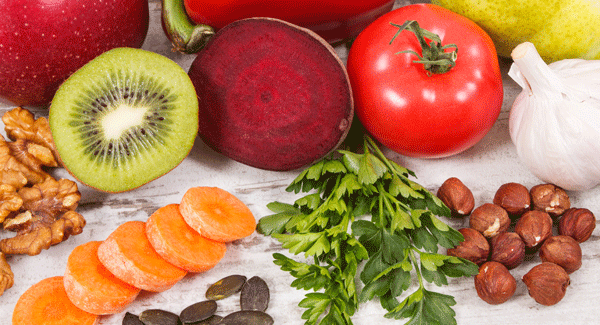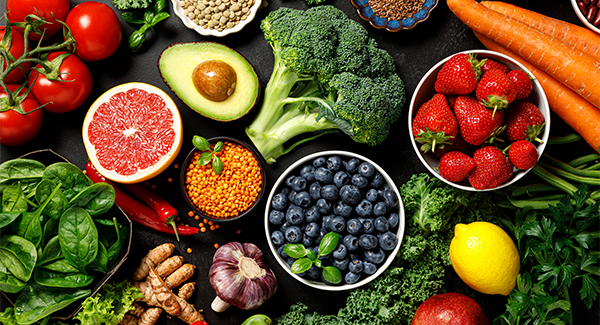8 Food Ingredients That Can Cause Inflammation
Avoid these 8 food ingredients that may trigger more inflammation in your body.
1. 8 Food Ingredients That Can Cause Inflammation
When you have arthritis, your body is in an inflammatory state, which can trigger pain and other symptoms. And what you eat may increase inflammation and set you up for other chronic conditions such as obesity, heart disease and diabetes. Limit these eight pro-inflammatory foods and ingredients.
2. Sugar
It may be hard to resist desserts, pastries, chocolate bars, sodas, even fruit juices. However, the American Journal of Clinical Nutrition warns that processed sugars trigger the release of inflammatory messengers called cytokines. Sugar goes by many names so look out for any word ending in “ose,” e.g. fructose or sucrose on ingredient labels.
3. Saturated Fats
Several studies have shown that saturated fats trigger adipose (fat tissue) inflammation, which is not only an indicator for heart disease but it also worsens arthritis inflammation. Pizza and cheese are the biggest sources of saturated fats in the average American diet, according to the National Cancer Institute. Other culprits include meat products (especially red meat), full-fat dairy products, pasta dishes and grain-based desserts.
4. Trans Fats
Harvard School of Public Health researchers helped sound the alarm about trans fat in the early 1990s. Known to trigger systemic inflammation, trans fat can be found in fast foods and other fried products, processed snack foods, frozen breakfast products, cookies, donuts, crackers and most stick margarines. Avoid foods with partially hydrogenated oils in the ingredient labels.
5. Omega 6 Fatty Acids
Omega 6 fatty acids are an essential fatty acid that the body needs for normal growth and development. The body needs a healthy balance of omega-6 and omega-3 fatty acids. Excess consumption of omega-6s can trigger the body to produce pro-inflammatory chemicals. These fatty acids are found in oils such corn, safflower, sunflower, grapeseed, soy, peanut, and vegetable; mayonnaise; and many salad dressings.
6. Refined Carbohydrates
White flour products (breads, rolls, crackers) white rice, white potatoes (instant mashed potatoes, or french fries) and many cereals are refined carbohydrates. According to Scientific American, processed carbohydrates may trump fats as the main driver of escalating rates of obesity and other chronic conditions. These high-glycemic index foods fuel the production of advanced glycation end (AGE) products that stimulate inflammation.
7. MSG
Mono-sodium glutamate (MSG) is a flavor-enhancing food additive most commonly found in prepared Asian food and soy sauce, but it can also be added to fast foods, prepared soups and soup mixes, salad dressings and deli meats. This chemical can trigger two important pathways of chronic inflammation, and affect liver health.
8. Gluten and Casein
People who have joint pain and are sensitive to gluten, found in wheat, barley and rye, or casein, found in dairy products, may find relief by avoiding them. And those diagnosed with celiac disease, in which gluten sets off an autoimmune response that damages the small intestine and sometimes causes joint pain may find relief when they adopt a gluten-free diet. There may be an overlap in which some people with arthritis also have gluten sensitivity or also have celiac disease.
9. Aspartame
Trying to go sugar-free? Aspartame is a non-nutritive, intense artificial sweetener found in more than 4,000 products worldwide. While it’s approved by the FDA, studies on its effects are mixed, and the impact on people with autoimmune disease are unknown. If you are sensitive to this chemical, your immune system may react to the “foreign substance” by attacking the chemical, which in return, will trigger an inflammatory response.
10. Alcohol
Alcohol is a burden to the liver. Excessive use weakens liver function and disrupts other multi-organ interactions and can cause inflammation. It is best eliminated or used in moderation.
11. Beating Inflammation
Cutting back on foods that promote inflammation, increasing the proportion of fruits and vegetables in your diet, making fish your main protein and getting more omega-3s are important to improving your diet for arthritis. help improve your make a big difference in your arthritis symptoms. Get help and support managing weight and controlling your chronic pain with our pain resources.
Get Expert Advice
Want more information on nutrition?
Our experts have you covered. Download our e-Book for more tips on arthritis-friendly foods.
Get the e-Book
Stay in the Know. Live in the Yes.
Get involved with the arthritis community. Tell us a little about yourself and, based on your interests, you’ll receive emails packed with the latest information and resources to live your best life and connect with others.




